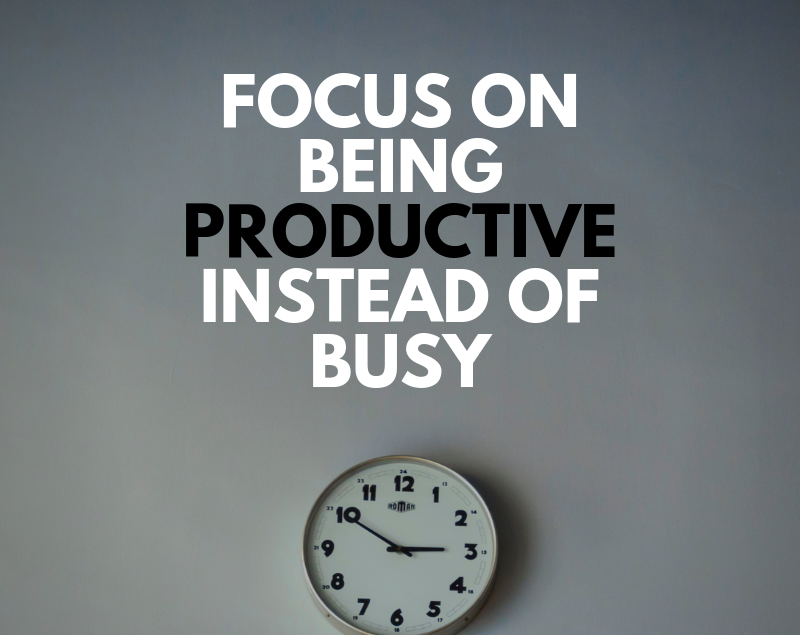Being More Productive – by Tayeb Chowdhury
Being More Productive – by Tayeb Chowdhury
Have you ever had an overwhelming surge of motivation at one instance, just to have a lack of motivation at the next? Have you ever had a proud feeling of accomplishment, spending your time doing something, all in while being satisfied, knowing that the same action will in all likelihood never be repeated. Do you truly believe you are productive?
To those of you who answer ‘yes’, let the following contents of this blog act as a means to supplement, enrich, and engrave your productive habits. For those who answer ‘no’ take the contents as a reference point to engage, empower, and educate yourself in order to build the fundamentals of your self-improvement.
“Consistency is key.”
“A habit must be established before it can be improved. If you can’t learn the basic skill of showing up, then you have little hope of mastering the finer details. Master the art of showing up.” – James Clear [Chapter 13 of Atomic Habits].
Per se a person has set themselves a goal to lose weight, thereby deciding to diet for a single day, would they achieve results? The sad reality is that there are no miracles, no overnight remedies. In order to grasp a goal, you have to endure the journey to get there.
But how do you establish a habit?
As James Clear outlines: one must master the art of showing up. To that, here is a demonstration of something called the two-minute rule.
For example; a student experiences a spontaneous burst of energy, letting them dedicate themselves to studying for a couple of hours. However, that spontaneous burst of energy was a one off. No matter how much the student thought about it, the idea of sitting at a desk, and committing hours of their time to studying seemed too intimidating of a task. Hence, they procrastinated.
Rather than throwing themselves straight in at the deep-end; they need to crawl before they can walk. To establish the art of showing up, they instead sit down with the intention of studying for two minutes. Instead of trying to be someone who studies for hours on end, they become the person who studies everyday. From then they can slowly build up from the foundation: from 2 minutes to 5, 10, 20 minutes etc. This way, a person is unlikely to be caught in procrastination, since the phenomenon of procrastination is typically triggered by the amygdala in the brain as a safety mechanism to avoid stressful situations. By reducing the scope of the time to two minutes, the task suddenly becomes much more attainable. Thereby helping the student cement the core habit of studying without being daunted by an overwhelming task.
“Being busy does not mean being productive.”
A common notion is that by spending your time doing tasks and activities it will directly correlate to being productive. However, that is a naive way of thinking. An economist by the name Vilfredo Pareto had noticed that 80% of Italy’s wealth belonged to 20% of its population. This observation laid the foundation to the Pareto principle. The idea that 80% of outcomes are attained from 20% of your efforts. Applying this to daily life, there are probably a countless number of menial tasks we engage in throughout the day. We get distracted, we fuss over minor details, we spend time over-complicating simple procedures. How much of what we do can we honestly say contributes to achieving our desired result? To identify which of our efforts correlate to the greatest results we can then adhere to those tasks, create a sense of priority and reap the rewards.
“Make your bed in the morning.”
As I creep closer towards the denouement of my blog, I will conclude on a piece of advice. Make your bed in the morning. This may seem random, but I can assure you there is a sense of profoundness behind it. Introducing a second two-minute rule. If you have a task that will take you two minutes; do it right then and there. Instead of letting small tasks pile up for later, deal with what you can at the moment. It is easier to face one opponent as opposed to an army.
Also, there is something called the show-time effect, alternatively known as the alter-ego effect [a book exploring this in greater detail: The Alter-ego effect by Todd Herman]. This follows the concept of being able to act in the way you make yourself appear. To assume an alter-ego of someone you may not necessarily be. This is commonly used in the workplace where people wear uniforms or dress code. A person who dresses up in a suit will typically, from thereon, act in a manner befitting it; demonstrating professionalism, behaving with etiquette, and appearing well-put together. Meanwhile off-shift they may be nothing alike to that image. The mere assumption of a role they had self assigned within their fanciful image of a person in a suit had caused an inherent change in their behaviour.
Starting your day by making your bed will create a self-image of being productive and getting things done, reluctantly setting the tone of the day to come. Tasks act in the snowball effect. If you start off small you can slowly build momentum to the large tasks. Just like dominoes once you topple one over a countless number will follow. By completing the task of making your bed it will also trigger the chemical reward system to release dopamine giving you biological motivation to be more productive in the day to come.
To wrap things up, what I have explored is just the tip of the iceberg. Much more could be said, such as the role of the environment (expanding upon just making your bed) as well as numerous other factors. However, let this act as a starting point to learn and develop yourself. I wish you all, the lovely readers, ease in your pursuits for productivity.

